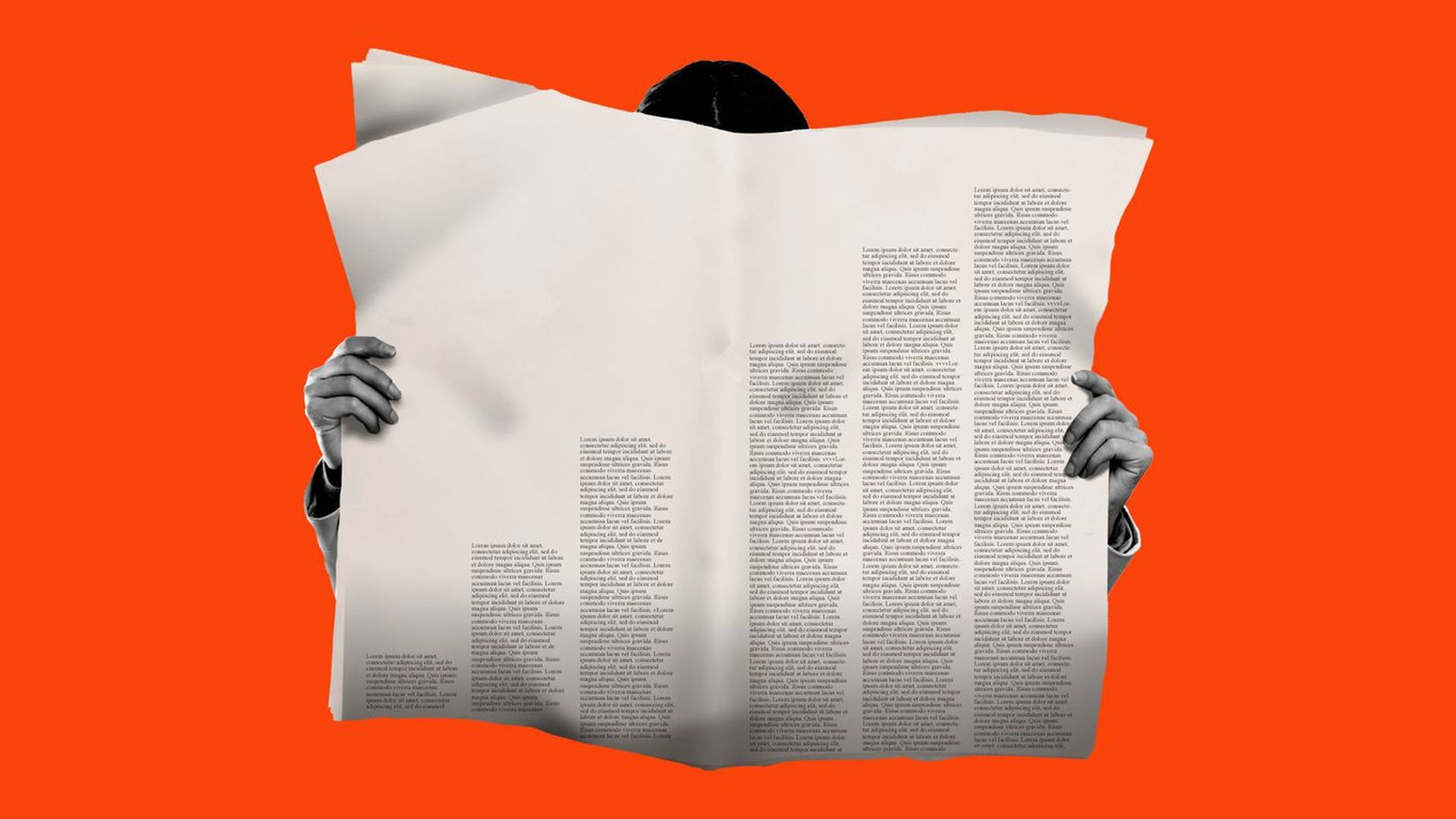Congress comes together to save local news
Add Axios as your preferred source to
see more of our stories on Google.

Illustration: Sarah Grillo/Axios
In a symbolic move, Sen. Mitch McConnell (R-Ky.) last week signed on to be a co-sponsor to a bill that would allow newspapers to collectively negotiate with tech giants like Google and Facebook.
Why it matters: The move represents a truly bipartisan effort to get something done in Washington, for a change. With the Senate majority leader's support, it's much more likely that the bill will pass in both chambers and be signed into law by the president.
Details: The bill, which is formally called the Journalism Competition & Preservation Act, would provide a temporary safe harbor for news publishers to collectively negotiate with Facebook and Google for better distribution deals.
- It was first introduced in the House in 2018 by Rep. David N. Cicilline (D-R.I.), the top Democrat on the House Antitrust Subcommittee, in response to pressure from one of the biggest trade groups representing thousands of newspapers, the News Media Alliance, asking Congress in 2017 to consider passing such legislation.
- It was re-introduced in April 2019 after Democrats took back the House and has since garnered further support, especially in the Senate.
- Sens. John Kennedy (R-La.) and Amy Klobuchar (D-Minn.) introduced a companion bill in the Senate during the summer of 2019. Members from both sides, including Sens. Cory Booker (D-N.J.) and Rand Paul (R-Ky.) have since co-sponsored the bill.
The big picture: McConnell's support can be seen as an example of how members need to balance local needs with national politics.
- Many members, feeling the pressure from their local constituencies, are being urged to do something about the crisis at home with local news.
- But nationally, they are happy to call out major newspapers when they are critical of their policies or their party.
What they're saying: "Members of Congress are realizing the urgency and importance of this issue, especially for local news publishers," said David Chavern, president and CEO of News Media Alliance, in a statement on McConnell's support.
The big picture: Google and Facebook control up to 60% of the digital advertising economy in the U.S., a market that used to be controlled by media companies.
- This bill aims to give news companies, including many local papers, the power to collectively demand that big online giants pay them more for their work, or give them more data, brand visibility and control of their product on their platforms.
Yes, but: While the regulatory power pendulum is slowly swinging back to those that do actually own and create content, many local media companies have faced so many challenges in the digital era that now seem beyond repair.
Our thought bubble: It's unlikely that collective bargaining power will do much to help thousands of struggling news outlets get paid adequately for their work on the internet, as tech companies have a long history of fighting these kinds of negotiating efforts.
- Google News, for example, pulled out of Spain several years ago after regulators signed a copyright bill into law that would require them to pay news publishers.
- It's threatened to do the same thing in Europe in the next few years if regulators pass new copyright provisions there.
Be smart: The move is part of a larger trend within a Republican-controlled Washington to de-regulate legacy industries so that they can better compete with technology companies, instead of adding regulations to technology companies.
- Regulators have already begun to roll back decades-old rules that limited the reach of broadcasters and newspapers.
- The efforts come as bipartisan frustration with tech companies has taken over Washington.
Bottom line: What the passage of this bill would really do is send a message to internet giants that policymakers are looking for ways to level the playing field between tech giants and news companies.
Go deeper:
